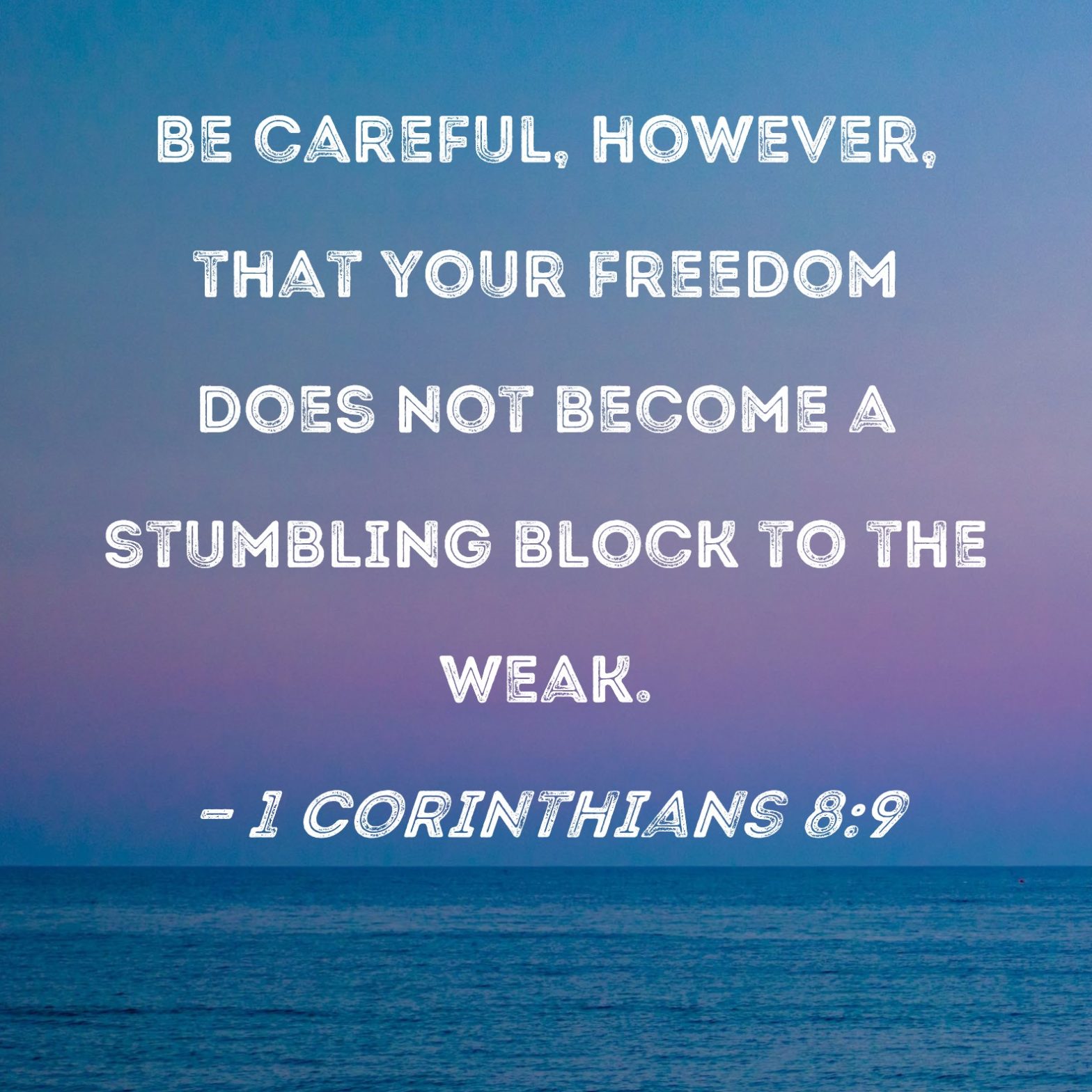DO NOT BE A BAD INFLUENCE ON OTHERS
THE SEED
“But take heed lest by any means this liberty of yours become a stumbling block to them that are weak.” — 1 Corinthians 8:9 (KJV)
As children of God, we have a responsibility to be a positive influence, especially to those who are new in the faith. It is important to recognise and correct any behaviour that could lead others astray. Our actions, words, attitude, and even our lifestyle should reflect Christ so that we do not become a stumbling block to those who are still growing in their faith. A personal example from my local church illustrates this point. A woman who was known for her temper often insulted others, even rejecting gifts from those trying to bless her. However, after listening to God’s Word and allowing it to transform her, she changed her ways. Now, she is kind and approachable, and others are drawn to her. Similarly, the Bible tells us about King Manasseh, who led the people of Judah into sin (2 Kings 21). However, when he was humbled and taken captive to Babylon, he repented and sought the Lord. God forgave him, and he restored true worship in Judah (2 Chronicles 33). This shows that no matter how bad our influence has been in the past, we can always turn to God, change our ways, and lead others towards Him.
BIBLE READING: 1 Corinthians 8:9-13
PRAYER: Father, help me to stand firm in You. Let Your Holy Spirit strengthen me so that I do not mislead others; instead guide them closer to You. Amen.
MAṢE JẸ IPA BUBURU LORI AWỌN MIIRAN
IRUGBIN NAA
“Ṣùgbọ́n kí a má baà kọbi ara sí ní ọ̀nà èyíkéyìí, òmìnira tìrẹ yìí di ohun ìkọsẹ̀ fún wọn tí kò lágbára.”1 Kọ́ríńtì 8:9 (KJV)
Gẹ́gẹ́ bí ọmọ Ọlọ́run, a ní ojúṣe kan láti jẹ́ ipa rere, ní pàtàkì fún àwọn tí wọ́n jẹ́ tuntun nínú ìgbàgbọ́. O ṣe pataki lati ṣe idanimọ ati ṣatunṣe eyikeyi ihuwasi ti o le mu ki awọn miiran ṣina. Ìwà, ọ̀rọ̀, ìṣarasíhùwà wa, àti ìgbésí ayé wa pàápàá gbọ́dọ̀ fi Kristi hàn kí a má bàa di ohun ìkọsẹ̀ fún àwọn tí wọ́n ṣì ń dàgbà nínú ìgbàgbọ́ wọn. Apẹẹrẹ ti ara ẹni lati ile ijọsin agbegbe mi ṣapejuwe aaye yii. Obìnrin kan tí wọ́n mọ̀ sí ìbínú rẹ̀ sábà máa ń gàn àwọn ẹlòmíràn, kódà ó kọ ẹ̀bùn látọ̀dọ̀ àwọn tó ń gbìyànjú láti bù kún un. Sibẹsibẹ, lẹhin ti o tẹtisi Ọrọ Ọlọrun ati gbigba laaye lati yi i pada, o yi awọn ọna rẹ pada. Ní báyìí, ó jẹ́ onínúure, ó sì sún mọ́ ọn, àwọn mìíràn sì fà á mọ́ra. Lọ́nà kan náà, Bíbélì sọ fún wa nípa Ọba Mánásè, ẹni tó kó àwọn ará Júdà sínú ẹ̀ṣẹ̀ (2 Àwọn Ọba 21). Bí ó ti wù kí ó rí, nígbà tí wọ́n rẹlẹ̀ tí wọ́n sì mú un lọ sí ìgbèkùn lọ sí Bábílónì, ó ronú pìwà dà ó sì wá Olúwa. Ọlọ́run dárí jì í, ó sì mú ìjọsìn tòótọ́ padà bọ̀ sípò nínú Júdà (2 Kíróníkà 33). Èyí fi hàn pé bó ti wù kí agbára wa ti burú tó nígbà àtijọ́, a lè yíjú sí Ọlọ́run nígbà gbogbo, yí ọ̀nà wa padà, kí a sì darí àwọn ẹlòmíràn sí ọ̀dọ̀ Rẹ̀.
BIBELI KIKA: 1 Kọ́ríńtì 8:9-13.
ADURA: Baba, ran mi lowo lati duro ṣinṣin ninu Re. Ẹ jẹ́ kí Ẹ̀mí Mímọ́ Rẹ fún mi lókun kí n má bàa ṣi àwọn ẹlòmíràn lọ́nà; sugbon dari wọn si O. Amin.
